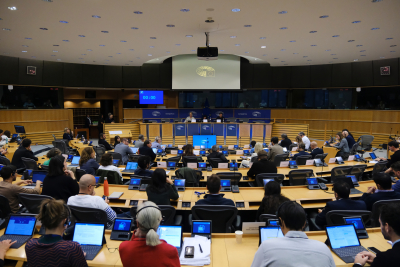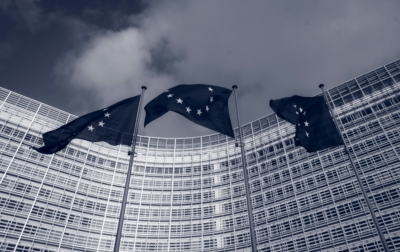Today marks five years since the Sunday Times broke the ‘Cash-for-Amendments’ scandal. Back in 2011, British undercover reporters recorded three MEPs who willingly accepted money for submitting amendments to EU legislation. The scandal led Mr Buzek, then President of European Parliament, to hastily order an internal investigation and a review of the Parliament’s rules of procedures.
Under the rules of the day, Parliament had no means to sanction the three MEPs in question – Romanian Adrian Severin, Austrian Ernst Strasser and Slovenian Zoran Thaler – let alone to evict them from Parliament. The European Anti-Fraud Office (OLAF) launched an investigation and national authorities ultimately took over and convicted all three. Strasser is serving four years, Thaler two and a half and Severin, who was convicted only in February 2016, will serve three and a half years pending the final confirmation of his sentence.
In the Parliament, a Code of Conduct was introduced in 2012, requiring MEPs to publish declarations of their financial interest. The Code was meant to bring out their outside interests and incomes so that the public could check them for conflicts of interest.
Four years after its introduction, we see that the Code of Conduct has failed to address this problem. We are still missing a robust set of rules and adequate supervision and enforcement mechanisms, which Transparency International EU called for back in 2011.
The latest numbers from EU Integrity Watch, Transparency International EU’s online portal for analysing the outside activities of MEPs, indicates that 334 or 45% of MEPs have paid-for outside activities. Combined they earn between €3.5 and €14.2 million a year on top of their salaries, which they receive “in return for denying themselves a private career”. 62 MEPs have outside incomes exceeding an average wage across the EU of 17,628€ per year.
For the majority of these cases the information provided in the financial declarations is poor and it is often impossible to rule out conflict of interests. Dozens of MEPs simply declare to work as “lawyers”, “consultants” or to pursue “individual economic activities”. Others declare activities that go under an abbreviation such as “ASDCAM”, where even a more detailed online search does not yield any results. The current set up does not even rule out MEPs working as lobbyists on top of their political mandate.
All this begs the question, if the three MEPs convicted for the Cash-for-Amendments scandal had received a regular salary for lobbying their colleagues instead of a one-off payment for an amendment, would they have gone unpunished?
What we clearly see is that since 2011 there have been eight cases in which the Code has been breached. So far, however, there has not been a single case in which a member has been sanctioned for wrongdoing. It is high time for meaningful reform of the European Parliament’s ethics regime.




